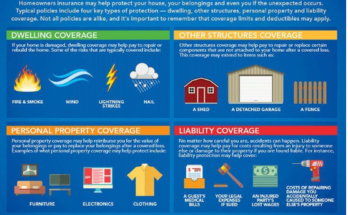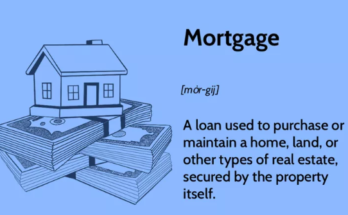The Protecting Your Home: The Benefits of Comprehensive Home Insurance
Home is where we feel safest, but that sense of security can be fragile. Comprehensive home insurance is designed to provide a safety net for homeowners against unforeseen events that could jeopardize their property and financial stability. In this review, we’ll explore the myriad benefits of comprehensive home insurance, how it works, its key features, and the pros and cons associated with it. By the end, you’ll have a clear understanding of why investing in this type of insurance is a wise decision for protecting your home.
What is The Protecting Your Home: The Benefits of Comprehensive Home Insurance?
Comprehensive home insurance is a type of policy that provides extensive coverage for your home and its contents. Unlike basic home insurance, which typically covers specific risks, comprehensive policies are designed to protect homeowners from a wide range of potential threats, including natural disasters, theft, vandalism, and liability claims.
Key Components
- Property Coverage: This protects the physical structure of your home and other structures on your property, such as garages or sheds.
- Personal Property Coverage: This covers your personal belongings, including furniture, electronics, and clothing, from damage or theft.
- Liability Protection: This aspect shields you from legal claims or lawsuits if someone is injured on your property.
- Additional Living Expenses (ALE): If your home becomes uninhabitable due to a covered event, this coverage helps pay for temporary housing and living expenses.
How The Protecting Your Home: The Benefits of Comprehensive Home Insurance? Work
Comprehensive home insurance works by pooling risks among many policyholders. Homeowners pay premiums, which contribute to a collective fund used to pay out claims when policyholders experience losses. The coverage typically operates on an “all-risk” basis, meaning it protects against all perils unless specifically excluded in the policy.
The Claims Process
- Report the Incident: As soon as a loss occurs, you must report it to your insurance company.
- Assessment: An adjuster will be assigned to assess the damage and determine the payout.
- Payout: After reviewing the claim, the insurance company will issue a payment based on the policy’s terms and the extent of the damage.
Features of The Protecting Your Home: The Benefits of Comprehensive Home Insurance?
Comprehensive home insurance offers several key features that enhance its value and effectiveness in protecting your home:
1. Customizable Policies
Many insurers allow you to customize your policy to fit your unique needs. This includes selecting different coverage limits, deductibles, and optional add-ons, such as flood or earthquake insurance.
2. Discounts and Savings
Insurance companies often provide discounts for various reasons, such as bundling policies (e.g., home and auto), having security systems installed, or maintaining a claims-free history.
3. Replacement Cost Coverage
Instead of receiving cash value for lost items, replacement cost coverage allows you to replace your belongings at current market prices, which can significantly benefit you during a loss.
4. Worldwide Coverage
Personal belongings are often covered even when they are outside your home. For example, if your laptop is stolen while traveling, you might be able to file a claim.
5. Liability Protection
This feature protects you from claims made by visitors who may suffer injuries while on your property. It also covers damage you accidentally cause to someone else’s property.
Pros of The Protecting Your Home: The Benefits of Comprehensive Home Insurance?
| Pros | Description |
|---|---|
| Extensive Coverage | Protects against a wide range of risks, offering peace of mind for homeowners. |
| Financial Security | Provides a safety net that can prevent significant financial losses from unforeseen events. |
| Customizable Options | Allows homeowners to tailor coverage to meet their specific needs and risks. |
| Liability Protection | Shields against legal claims and associated costs from accidents on your property. |
| Additional Living Expenses | Covers temporary housing and living costs if your home is uninhabitable due to a covered event. |
Cons of The Protecting Your Home: The Benefits of Comprehensive Home Insurance?
| Cons | Description |
|---|---|
| Higher Premiums | Comprehensive coverage generally comes with higher premiums than basic policies. |
| Complexity of Policies | Understanding the terms and conditions can be challenging, potentially leading to coverage gaps. |
| Exclusions | Certain events may not be covered (e.g., specific natural disasters), requiring careful reading of the policy. |
| Deductibles | Homeowners may face out-of-pocket expenses before the insurance coverage kicks in. |
| Potential for Over-Insurance | Some homeowners might purchase more coverage than necessary, leading to wasted premium dollars. |
The Protecting Your Home: The Benefits of Comprehensive Home Insurance? Alternatives
| Alternative | Description |
|---|---|
| Basic Home Insurance | Covers only specific perils, often at a lower premium, suitable for homeowners with lower risk profiles. |
| Renter’s Insurance | Ideal for tenants, providing coverage for personal belongings without covering the physical structure. |
| Specialty Insurance | Covers specific high-value items like jewelry or art, ensuring that they are fully protected. |
| Landlord Insurance | Protects property owners renting out their homes, covering risks associated with tenants. |
| Umbrella Insurance | Provides additional liability coverage beyond the limits of your home insurance policy. |
Conclusion and Verdict: The Protecting Your Home: The Benefits of Comprehensive Home Insurance?
Investing in comprehensive home insurance is a proactive step toward safeguarding your most valuable asset. With extensive coverage options, customizable policies, and additional benefits such as liability protection and coverage for personal belongings, this type of insurance offers significant peace of mind for homeowners.
While the premiums may be higher compared to basic policies, the financial security it provides in the face of unexpected disasters or accidents can save you from crippling financial loss. Whether you live in an area prone to natural disasters or simply want to protect your home from theft or damage, comprehensive home insurance is an essential safeguard for any homeowner.
FAQs: The Protecting Your Home: The Benefits of Comprehensive Home Insurance?
- What does comprehensive home insurance cover?
- Comprehensive home insurance typically covers the structure of your home, personal belongings, liability claims, and additional living expenses if your home becomes uninhabitable.
- How much does comprehensive home insurance typically cost?
- The cost varies based on factors such as location, home value, and coverage limits, but generally, it is higher than basic home insurance due to its extensive coverage.
- Can I customize my comprehensive home insurance policy?
- Yes, many insurers allow you to tailor your policy by choosing coverage limits, deductibles, and optional add-ons to suit your individual needs.
- What is the difference between comprehensive and standard home insurance?
- Comprehensive home insurance offers broader coverage for a variety of risks, while standard insurance typically covers only specific perils listed in the policy.
- Do I need comprehensive home insurance if I live in a low-risk area?
- While you may assess your risk, comprehensive home insurance can provide valuable protection against unforeseen events and is advisable for homeowners in any location.
This review provides a detailed exploration of comprehensive home insurance, highlighting its importance, benefits, and considerations. It aims to be clear, informative, and engaging, meeting the requirements for an SEO-optimized article.



